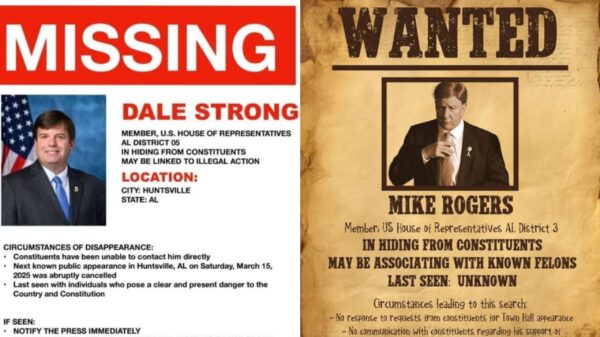By Brandon Moseley
Alabama Political Reporter
U.S. Representative Robert Aderholt (R from Haleyville) said that he will continue to keep an eye on Net Neutrality legislation and will work with fellow legislators on a common sense solution.
Congressman Aderholt said in his November newsletter, “I’ve heard from many constituents of the Fourth District recently about net neutrality and welcome the opportunity to continue to examine the details of the mechanics of the issue. In 2010, the Federal Communications Commission (FCC) published a “net neutrality” rule that would, in effect, ensure that internet providers have to treat all websites the same and not charge any of them for special treatment, such as increased speed.”
Rep. Aderholt said, “In January 2014, the Court of Appeals struck down the FCC’s net neutrality rule. The court ruled that the agency is allowed to regulate “common carriers” (companies that have to provide the same service, without discrimination, to everyone, such as gas, electricity, land-line telephone services, etc), but it is not allowed to regulate “information services,” such as the Internet, in the same way. In response to this ruling, the FCC recently proposed that internet providers be reclassified as “common carriers.””
Rep. Aderholt continued, “Proponents of net neutrality are supportive of this reclassification, as it would enable the FCC to implement and enforce net neutrality rules, leveling the playing field for any company that wishes to have a presence on the Internet. With net neutrality, there would be no difference in the streaming speeds that Internet providers provide for websites, such as Netflix, compared to local chambers of commerce sites, for instance.”
Congressman Aderholt said, “However, some people are wary that reclassifying Internet providers as “common carriers” will give the government too much power to regulate the Internet, potentially limiting free speech. Others oppose the rules on principle because they view them as interfering with the free market. Internet service providers are also opposed to net neutrality rules because these rules would deny them the profit gained from charging for Internet fast lanes.”
The conservative Alabama Congressman concluded, “On Monday, November 10, President Obama announced his support for the FCC’s intent to reclassify Internet providers as common carriers. A number of bills have been introduced in the House of Representatives regarding net neutrality. As this issue moves forward, I will continue to keep an eye on the matter and work with my colleagues on a common-sense solution.”
The Heritage Foundation’s James L. Gattuso and Michael Sargent wrote recently, “Despite rhetoric indicating that neutrality regulation is needed to address anti-consumer misconduct by dominant Internet service providers, the rules would hardly be limited to these cases. The vast majority of claimed violations of neutrality principles involved challengers in the marketplace and practices that would reduce consumers’ costs. The predictable consequences of such regulation would leave competition reduced and Internet users worse off. The FCC and Congress should reject calls to impose this dangerous regulatory scheme on consumers. Instead, it should allow the Internet marketplace to function unimpeded, policed by competition and the same competition laws that apply to other industries.”
President Obama wrote in his November statement, “I believe the FCC should create a new set of rules protecting net neutrality and ensuring that neither the cable company nor the phone company will be able to act as a gatekeeper, restricting what you can do or see online. The rules I am asking for are simple, common-sense steps that reflect the Internet you and I use every day, and that some ISPs already observe. These bright-line rules include:
• No blocking. If a consumer requests access to a website or service, and the content is legal, your ISP should not be permitted to block it. That way, every player — not just those commercially affiliated with an ISP — gets a fair shot at your business.
• No throttling. Nor should ISPs be able to intentionally slow down some content or speed up others — through a process often called “throttling” — based on the type of service or your ISP’s preferences.
• Increased transparency. The connection between consumers and ISPs — the so-called “last mile” — is not the only place some sites might get special treatment. So, I am also asking the FCC to make full use of the transparency authorities the court recently upheld, and if necessary to apply net neutrality rules to points of interconnection between the ISP and the rest of the Internet.
• No paid prioritization. Simply put: No service should be stuck in a “slow lane” because it does not pay a fee. That kind of gatekeeping would undermine the level playing field essential to the Internet’s growth. So, as I have before, I am asking for an explicit ban on paid prioritization and any other restriction that has a similar effect.”
President Obama wrote, “If carefully designed, these rules should not create any undue burden for ISPs, and can have clear, monitored exceptions for reasonable network management and for specialized services such as dedicated, mission-critical networks serving a hospital. But combined, these rules mean everything for preserving the Internet’s openness.”
Conservatives fear over regulation by Federal authorities.
Congressman Robert Aderholt represents Alabama’s Fourth Congressional District.






















































